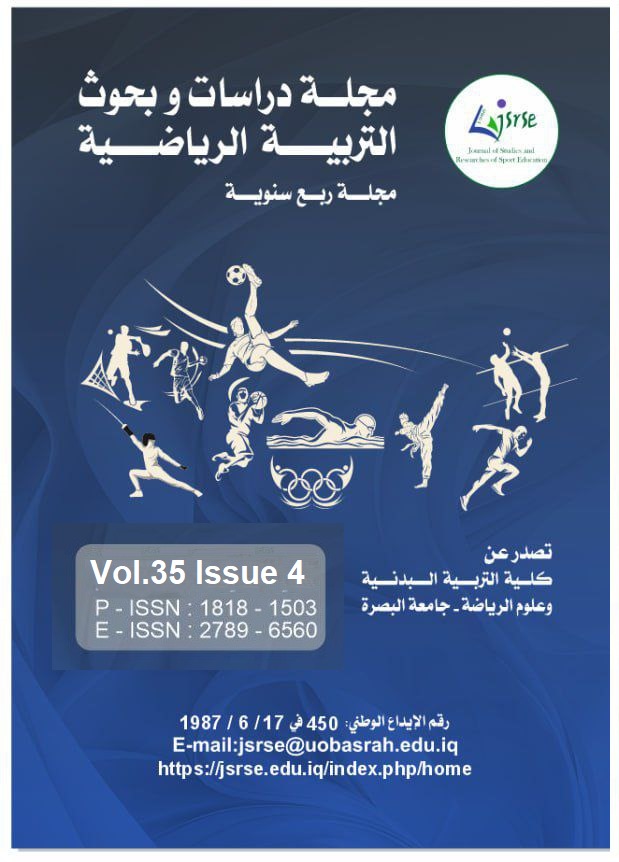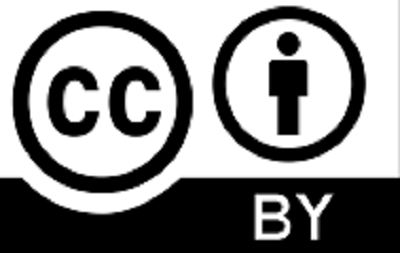The Effect of the Realistic Simulation Model Based on Social Learning Theory on Students' Learning of the Side Punch, Takedown, and Defense Against Them
Main Article Content
Abstract
This research aims to identify the impact of a realistic simulation model based on Albert Bandura's social learning theory on learning the side punch and the takedown punch. Researchers used an experimental design with two groups: a control group and an experimental group. The sample consisted of second-year male evening students at the College of Physical Education and Sports Sciences, University of Anbar. The researchers concluded that the realistic simulation model based on social learning theory had a more positive impact than the traditional command-based learning model on the students' motor learning outcomes for the side punch, takedown punch, and defense against these punches, as evidenced by the study results. The study recommends using the proposed model in teaching other types of combat sports to students
Article Details

This work is licensed under a Creative Commons Attribution-NonCommercial 4.0 International License.
References
Ahmed, N. H., Omar, A. F., & Hammad, F. (2009). The Effect of Complex Exercises Using the Strategy of Pressure Game to Develop the Energy Expended for the Heart and the Speed of the Skilled Performance of the Football Players.
Ali, H. (2019). Learning through simulation and developing motor skills among young basketball players (1st ed). Dar Al-Fikr.
Al-Jurjani, A. bin M. bin A. A.-Z. (1983). The Book of Definitions: Vol. Volume 1 (1st Edition). Dar Al-Hikma, Beirut.
Al-Sharqawi, A. M. (1997). Learning Theories and Applications (5th Edition). Anglo-Egyptian Library.
Al-Tantawi, E. M. (2009). Effective Teaching: Its Planning, Skills, Strategies and Evaluation (1st ed). Dar Al-Masira.
Al-Zaghloul, E. A. R. (2015). Learning Theories. Dar Al-Shorouk for Publishing and Distribution.
Hadi Hammad, S., Sami Shabib, S., Abdullah Hussein, O., Jijan Sabaar, H., Mohammed Saad, H., Hammad Asal, F., & Hamed Yousif, M. A. (2025). Using technology to provide instant feedback and its impact on personal agility and learning some basic skills in foil fencing. Retos, 71, 1055–1065. https://doi.org/10.47197/retos.v71.117193
Harry Cloke. (2024). A Beginner’s Guide to Scenario-Based Learning . Https://Www.Growthengineering.Co.Uk/a-Beginners-Guide-to-Scenario-Based-Learning/Https://Www.Almaany.Com/.
Hasan, M. M., Mosleh, O. A., & Hammad, F. (2020). The impact of the method of teaching the mediator different speed and mental training to teach some of the offensive skills for beginners in handball. EXECUTIVE EDITOR, 11(04), 326.
Hassan, M. M., sami Shabib, S., & Shabib, A. S. (2025). The effect of the visual motor task learning model supported by VAR (Venetian motor task learning) technology on the motor learning outcomes of some basic boxing skills for students. Journal of Sports Education Studies and Research, 35(2), 47–58. https://doi.org/DOI:https://doi.org/10.55998/jsrse.v35i2.1056
JERRY DALE, J., & CATHERINE ELISE, B. (2017). Simulation as a Classroom Teaching Method. I-Manager’s Journal on School Educational Technology, 12(4), 49. https://doi.org/10.26634/jsch.12.4.13551
Schmidt, R. A., & Wrisberg, C. A. (2008). Motor learning and performance: A situation-based learning approach. Human kinetics.
Zaid, A. A. (2024). The effect of Adelson’s model using enrichment activities on the cognitive achievement and skill performance of the side and upward punches and their defenses in boxing for students [PhD thesis]. University of Karbala.





 IASJ
IASJ CC-BY-4.0
CC-BY-4.0 turnitin
turnitin ISSN
ISSN DOAJ
DOAJ Crossref
Crossref GoogleScholar
GoogleScholar Orcid
Orcid